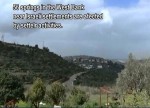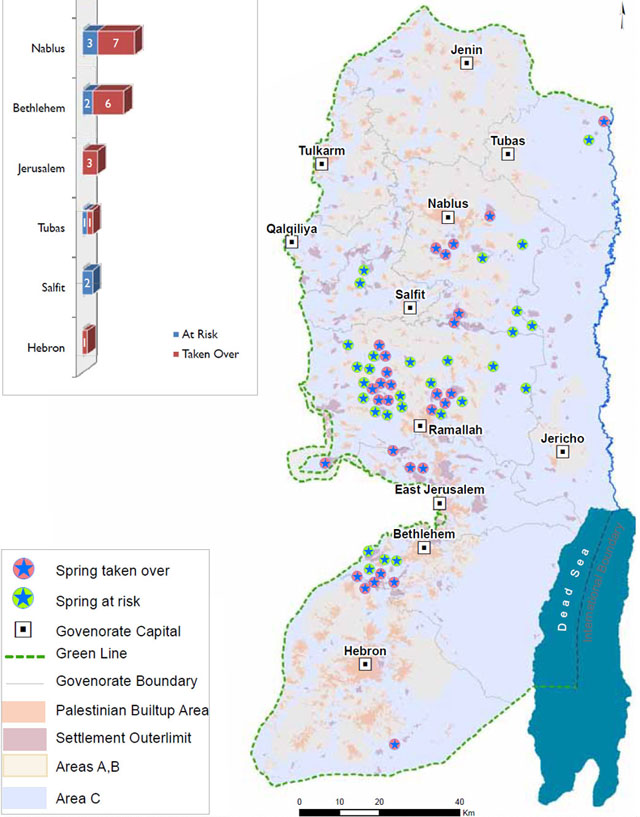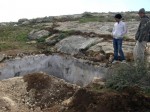Videos Of Theft Of Palestinian Water
Kawther Salam
March 20, 2012
 According
to a report released yesterday Monday March 19 2012 by the United
Nations Office for the Coordination of Humanitarian Affairs in the
occupied Palestinian territory, the zionists jewish colonists have
"seized" Palestinian Water Resources (dozens of natural springs) in the
occupied West Bank, barring Palestinians and limiting their access to
the scarce water in the area. According
to a report released yesterday Monday March 19 2012 by the United
Nations Office for the Coordination of Humanitarian Affairs in the
occupied Palestinian territory, the zionists jewish colonists have
"seized" Palestinian Water Resources (dozens of natural springs) in the
occupied West Bank, barring Palestinians and limiting their access to
the scarce water in the area.In addition to the zionist crimes and which the UN does not mention in theirSee the videos of theft of Palestinian water released in the United Nations report published below. See the UN (OCHA)report as (PDF) file.  The
U.N. Office for the Coordination of Humanitarian Affairs (OCHA) said it
had surveyed 530 springs in the West Bank and found that 30, mostly in
areas where Israel retains military control, were taken over by the
settlers. The
U.N. Office for the Coordination of Humanitarian Affairs (OCHA) said it
had surveyed 530 springs in the West Bank and found that 30, mostly in
areas where Israel retains military control, were taken over by the
settlers.Jewish settlers have seized dozens of natural springs in the occupied West Bank, barring Palestinians or limiting their access to scarce water sources, a United Nations report said on Monday. The U.N. Office for the Coordination of Humanitarian Affairs (OCHA) said it had surveyed 530 springs in the West Bank and found that 30, mostly in areas where Israel retains military control, were taken over by the settlers. There are 56 water springs in the West Bank in the vicinity of Israeli settlements that have become the target of settler activities. Thirty (30) of these springs have been taken over completely by Israeli settlers, while the other 26 are at risk of settler take over, due to regular settler "tours" and patrolling. Click here to see the first video of theft  Four of the springs fall within Areas B, close to the boundaries with Area C, and the rest are located within Area C. Four of the springs fall within Areas B, close to the boundaries with Area C, and the rest are located within Area C.At least 84 percent of the springs affected by settler activities are located on land recognized by the Israeli Civil Administration (ICA) as privately owned by Palestinians. Click on the small images to enlarge them. In three-quarters of the springs taken-over, Palestinians have been deterred from accessing the area by acts of threat and intimidation, while access to the rest has been prevented by physical obstacles. Click here to see the second video of theft  In more than 70 percent of the springs, Israeli settlers have begun to develop the surrounding area into a "tourist attraction". In more than 70 percent of the springs, Israeli settlers have begun to develop the surrounding area into a "tourist attraction".Virtually all of the springs affected by settler activities are, or were in the past, used by Palestinians for irrigation, watering of livestock and/or domestic water consumption. Click here to see the third video of theft Israel uses 86 percent of the water extracted from the Mountain Aquifer, which is a trans-boundary resource that must be shared between both sides in an equitable and reasonable manner. 1. In recent years, Israeli settler activity has significantly impaired Palestinian access to, and use of, a growing number of water springs. The main methods used by settlers to that end have been threats and intimidation, and the erection of fences around the targeted areas. 2. This phenomenon comes in the context of Israel’s longstanding policy of settling its civilian population in the occupied Palestinian territory, in violation of international humanitarian law. Nearly 40 percent of the West Bank has been seized by the Israeli authorities for that purpose. Additional Palestinian properties, including springs, have been taken over by settler groups without formal authorization, but with the acquiescence and often active support of the Israeli authorities. 3. Following the reduction of Palestinian presence, settlers begin developing the springs into tourist attractions, with the support of various Israeli governmental bodies. The ever growing tourism infrastructure of settlements contributes to their entrenchment by adding a source of revenue for the settler population, as well as by "normalizing" settlements in the eyes of larger segments of Israeli society. 4. The inability to access and use springs has significantly undermined the livelihoods and security of Palestinians living in affected communities. Many farmers were forced to either cease cultivating the land or face a reduction in productivity. Herders and households had to increase their expenditures to purchase more expensive piped or tankered water. The presence of armed settlers at the springs and their surroundings also resulted in increased friction and clashes. 5. The practices involved in the takeover and development of springs – including trespass, intimidation, theft, and building without permit – are illegal under both international and Israeli military legislation. Yet, the Israeli authorities have systematically failed to enforce the law on those responsible for these acts and to provide Palestinians with any effective remedy. 6. The encroachment on Palestinian land for the purpose of settlement expansion is a key cause of humanitarian vulnerability of the Palestinian population. Settlement expansion also results in the fragmentation of the West Bank, thus undermining the right of the Palestinian people to self-determination. 7. The Israeli authorities must stop facilitating the transfer of Israeli civilians into the oPt; restore Palestinian access to the water springs taken over by settlers; conduct effective investigations into cases of settler violence and trespass and prosecute those responsible; and prevent ongoing settler "tours" into springs located on private Palestinian land.  |




No comments:
Post a Comment